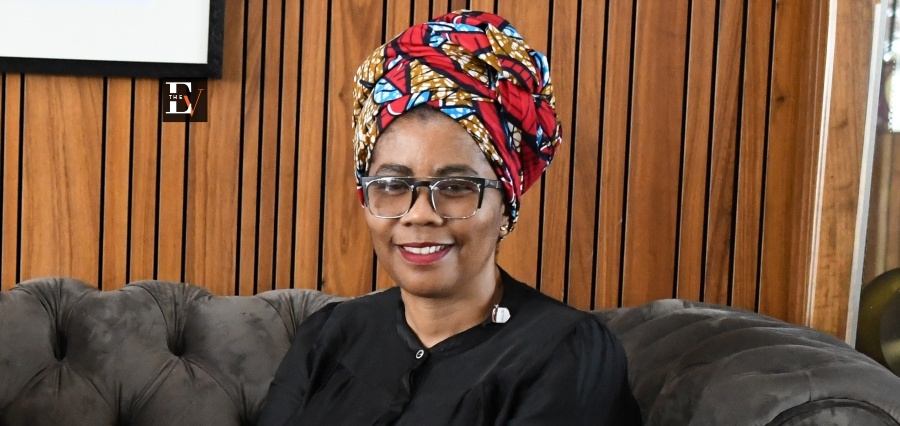The educational experts call for a comprehensive transformation to ensure equitable access, quality and relevance to a progressive society. They demand better access to education for the marginalized sections of girls, children with disabilities and remote or conflict-affected areas.
Improvements in education quality must also be made by overhauling curricula, improving teacher training, and integrating technology. This must solve structural problems such as insufficient financing, overcrowding in classrooms, and poor infrastructure. A unified approach to improvement must provide access and quality while addressing root causes to create a sustainable and all-inclusive education system.
Prof. Puleng LenkaBula, Principal & Vice-Chancellor of the University of South Africa (Unisa), provides innovative solutions to overcome obstacles in the education system. She believes in redefining higher education as a tool for transformation. Her vision is to leverage education to address the development requirements of Africa.
She focuses on inclusivity, equity and social justice believing that education would empower people to think analytically and critically. She has taken Unisa to a distance-learning model so that more underprivileged people benefit from education.
She claims that education is a catalyst for social change, where concerns are poverty, inequality and unemployment. She has embedded technology to increase access and flexibility and implemented support mechanisms for student success.
She is enthusiastic about curriculum updates and researching climate change and social inequality. She aligns closely with the UN Sustainable Development Goals to position Unisa as a model for inclusive, technology-enhanced education in Africa.
Encouraging Self-reliance through Learning
Prof. Puleng grew up in a family that strongly valued education to improve the quality of life. Her parents emphasized that education was not only a tool for acquiring knowledge and skills or increasing employability but also for developing self-reliance and independence. They believed that wealth without wisdom was inadequate and encouraged their children to seek wisdom through both formal education and lived experiences.
Her parents also shaped Prof. Puleng’s social consciousness, teaching her that education was essential in challenging the oppressive systems of Apartheid and colonialism, which were not just material but also cultural. For them, education was linked to the pursuit of freedom—cultural, spiritual and material—and was seen to rehumanize individuals and transform society.
Prof. Puleng and her siblings were taught that an illiterate society could not achieve true development, inspiring her to pursue a career as a teacher, specifically in special education.
The Role of Social Ethics in African Development
The defining moment of Prof. Puleng’s career was pursuing her doctoral degree in social ethics. This achievement allowed her to join a distinguished community of scholars tackling the challenges facing African institutions.
It also positioned her within an intellectual movement focused on cultivating the social ethics needed to transform South Africa into a truly free and democratic society. Her work aligns with fellow Africans dedicated to preserving Africa’s knowledge systems while exploring how these can enrich global knowledge traditions.
Advocating for Universal Education Access
Prof. Puleng is a strong advocate for universal access to education, particularly for marginalized groups, including individuals with disabilities, believing it is a fundamental right. She emphasizes the utilitarian value of education, arguing that it should go beyond theoretical knowledge to promote self-development and self-reliance and contribute to societal transformation.
She also champions the humanization of knowledge, rooted in the African philosophy of Ubuntu/Botho, which is crucial in addressing the legacy of Apartheid and colonialism. She advocates for a balanced, ethical approach to development, highlighting Africa’s longstanding commitment to sustainability as key to both cultural and contemporary progress.
Building a Brighter Future through Hope and Leadership
Prof. Puleng is an optimist who believes obstacles are not permanent barriers but catalysts for creativity and imagination. She maintains that hope and imagination are essential for overcoming adversity and staying positive. As a mother of two boys, Luma and Lebo, she understands the importance of being grounded and focused on the future.
She is committed to ensuring the next generation can thrive, not just for her children but for Africa. She believes that leaders must create opportunities for young people to succeed, ultimately contributing to the success of society.
The Importance of Research in Africa’s Progress
As Principal and Vice-Chancellor of the University of South Africa (Unisa), Prof. Puleng believes that lasting change in Africa can be achieved through the production of the latest knowledge and skills. She is committed to ensuring Unisa, as the largest university on the continent, plays a key role in securing Africa’s intellectual future in the 21st century, preventing the continent from being left behind in material progress.
Prof. Puleng sees high-quality research as crucial to transforming Africa’s patents and natural resources into value-added products and services, driving economic growth and innovation across the continent.
Embracing Change and Seizing Opportunities
Prof. Puleng believes that the youth are the leaders of today and tomorrow. She encourages young people to discover their passions, commit to meaningful causes and use their talents to shape society’s future. Emphasizing continuous learning and adaptability, she urges them to sharpen their skills to create opportunities beyond those of previous generations.
While valuing the wisdom of older generations, she stresses the importance of allowing young people the freedom to express their ideas and showcase their abilities. For Prof. Puleng, the future lies in the hands of youth, and it is their responsibility to shape it.
Leveraging Science for Sustainable Development
Prof. Puleng envisions a world characterized by sound, responsive and agile public institutions, academic excellence, and global peace. She believes that a world at peace is inherently an ethical world.
As Prof. Puleng has previously expressed, she hopes that the 21st century will mark a transformative era for Africa, one where all the key indicators of life, development and prosperity reflect progress. She views education and science as pivotal catalysts for achieving this vision, driving the kind of Africa that can thrive in the global environment.






